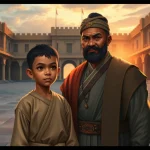The National Novel Writing Month (NaNoWriMo) is an annual event held every November, inviting writers of all levels to embark on the challenge of penning a 50,000-word novel in just 30 days. While the initiative is generally perceived as a celebration of creativity and community, the introduction of artificial intelligence (AI) tools has sparked a significant backlash within the writing community. This article delves into the current NaNoWriMo controversy surrounding AI, exploring the implications, the community’s responses, and what this means for the future of writing.
The Rise of AI in Writing
Artificial intelligence has become an integral part of various industries, including writing. Tools like ChatGPT and ProWritingAid are designed to assist writers in generating ideas, editing text, and even composing whole paragraphs. However, as AI tools grow in sophistication, their role in creative processes has come under scrutiny, particularly in the context of NaNoWriMo.
In September 2024, NaNoWriMo organizers issued a statement defending the use of AI in writing, claiming that condemning AI was “classist and ableist.” This assertion ignited a firestorm of criticism among authors and literary advocates, many of whom argue that AI undermines the essence of creative writing.
NaNoWriMo’s Position on AI
NaNoWriMo’s official stance on AI is one of neutrality. The organization maintains that it neither supports nor condemns the use of AI tools in the writing process. As cited in their official statement, they believe that discussions about AI are essential, especially regarding its ethical use. They argue that using AI can offer accessibility to those who may struggle with traditional writing methods, thereby fostering inclusivity.
However, this position has divided the community. Critics argue that embracing AI undermines the hard work and creativity that human writers bring to their craft. As reported by WIRED, authors have expressed concerns that AI-generated content dilutes the quality of literature and devalues the writing profession.
Community Backlash and Resignations
In response to NaNoWriMo’s AI policy, several prominent authors and board members have distanced themselves from the organization. For instance, CBC reported that some authors have stepped down from their roles in protest of the nonprofit’s stance. This exodus reflects a broader discontent within the writing community about the integration of AI into creative processes.
Critics cite multiple reasons for their dissatisfaction:
- Quality Concerns: Many writers believe that AI-generated content lacks the emotional depth and nuance that human writers naturally convey.
- Intellectual Property Issues: There are significant concerns about the use of existing literary works to train AI models, leading to questions about copyright and authorship.
- Economic Impact: Some authors fear that widespread use of AI could lead to fewer opportunities for human writers, as AI tools become a cheaper alternative for producing written content.
The Social Media Response
The backlash against NaNoWriMo’s AI endorsement has played out vigorously on social media platforms. Many authors have taken to Twitter and Facebook to express their outrage, using hashtags like #NoAIinNaNoWriMo to rally support. This public outcry has amplified calls for a reevaluation of the organization’s policies surrounding AI.
The Future of Writing in the Age of AI
As the debate over AI in writing continues, it raises critical questions about the future of creative expression. Will AI tools become standard practice in writing, or will the community push back against their use? The answer may depend on how organizations like NaNoWriMo navigate this evolving landscape.
The Potential Benefits of AI in Writing
Despite the concerns, some writers view AI as a beneficial tool rather than a threat. Here are a few potential advantages:
- Enhanced Productivity: AI can help writers overcome blocks, generate ideas, and fine-tune language, potentially increasing productivity during the NaNoWriMo challenge.
- Accessibility: For writers with disabilities or those who struggle with traditional writing methods, AI can offer vital support, making the writing process more inclusive.
- Learning Tool: AI tools can serve as educational resources for novice writers, helping them learn grammar, style, and structure.
A Balanced Approach
A balanced approach may be necessary, where writers can choose to use AI tools while still valuing the artistry and human experience inherent in writing. NaNoWriMo could play a pivotal role in establishing guidelines that respect both the creative process and the innovative potential of AI.
Conclusion
The controversy surrounding NaNoWriMo and AI highlights the ongoing tensions between tradition and innovation within the literary community. As the event approaches its 25th anniversary, the discussions about AI’s role in writing will likely continue, shaping the future of both NaNoWriMo and the broader landscape of literature.
FAQ Section
Q: What is NaNoWriMo?
A: NaNoWriMo, or National Novel Writing Month, is an annual event where participants aim to write a 50,000-word novel in November.
Q: Why is there controversy over AI in NaNoWriMo?
A: The controversy stems from NaNoWriMo’s defense of AI writing tools, which some authors believe undermines the value of human creativity and raises ethical concerns.
Q: What is NaNoWriMo’s official stance on AI?
A: NaNoWriMo maintains a neutral position, stating that it neither supports nor condemns the use of AI in writing.
Q: What are the potential benefits of AI for writers?
A: AI can increase productivity, enhance accessibility for writers with disabilities, and serve as a learning tool for novice writers.
Q: Are there any prominent authors who oppose AI in writing?
A: Yes, several notable authors have publicly criticized NaNoWriMo’s stance on AI, leading to resignations from the organization.
Q: Where can I find more information about the NaNoWriMo AI controversy?
A: You can read more about the controversy in articles from sources like The New York Times, WIRED, and The Atlantic.
As we move forward, it will be crucial to monitor how the writing community balances the benefits of AI with its commitment to preserving the integrity of the literary arts.
#notes





